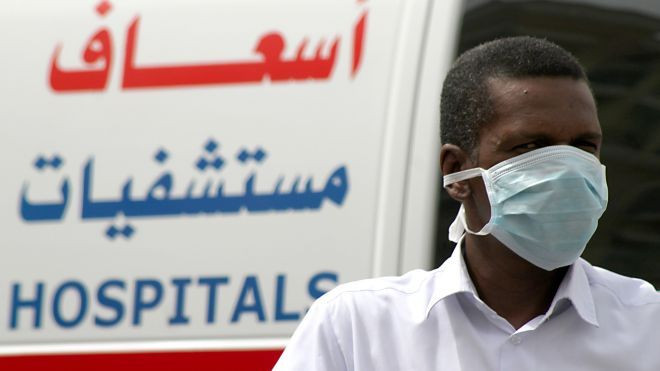MERS Infection Kills 73-Year-Old Man In Saudi Arabia, 3 More Remain Infected, According To WHO Reports

A 73-year-old man from Riyadh, Saudi Arabia, has died after becoming one of the Arabic state’s four laboratory-confirmed Middle East Respiratory Syndrome coronavirus (MERS-CoV) cases announced by the World Health Organization (WHO) on Friday. The three other cases, all reported in Saudi Arabia’s capital and largest city, included two female health workers and a 53-year-old man who is currently being treated at an intensive care unit (ICU).
According to the WHO, 170 laboratory-confirmed cases of MERS-CoV infections have been reported since September 2012, resulting in 72 deaths. People diagnosed with this chronic respiratory infection have reported minor symptoms such as fever, cough, shortness of breath, and diarrhea as well as severe complications, including renal failure and acute respiratory distress syndrome (ARDS).
The elderly man who passed away in Riyadh had no travel history. However, it was reported he had been exposed to animals. Earlier this month, a research team from the Netherlands and Qatari discovered the MERS virus can infect camels the same way it does in humans, Reuters reported. Seeing as camels provide the region with milk, transportation, and meat, the animals can lead to a possible outbreak. The man also had underlying chronic illnesses when he was hospitalized three days before passing away on Dec. 18.
The 53-year-old man who continues to receive treatment in the ICU was also diagnosed with underlying chronic illnesses after being hospitalized on Nov. 26. Although he had no travel history and no exposure to animals, he was exposed to a confirmed MERS-CoV case. The two female health workers have not experienced any of the disease’s symptoms. The WHO has not recommended the application of any travel or trade restrictions.
The WHO advises any traveler who recently visited the Middle East and developed a severe acute respiratory infection (SARI) to be tested for MERS-CoV. Individuals travelling to the Middle East have been asked to avoid close contact to animals and with people with an acute respiratory infection, wash their hands frequently, and adhere to food safety and hygiene rules. Health programs from Member States have also been “reminded of the importance of systematic implementation of infection prevention and control (IPC).”



























